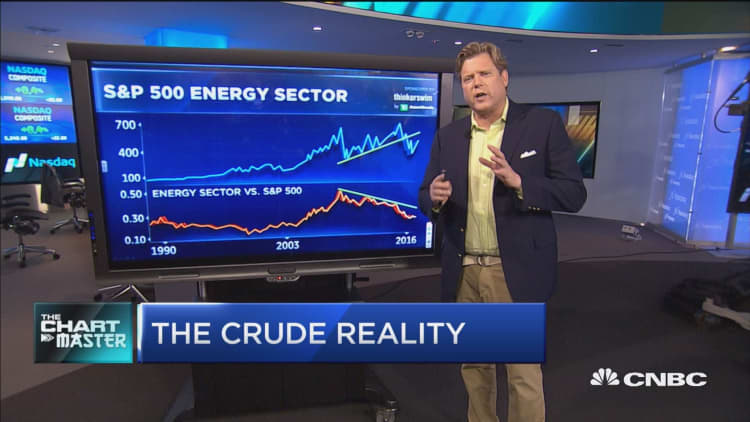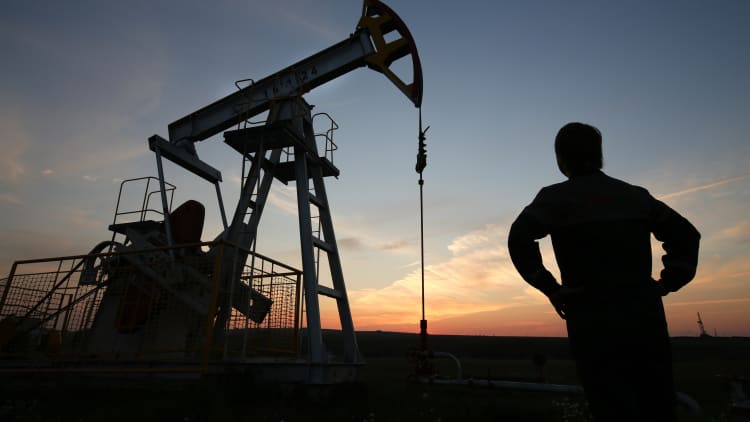Crude prices were higher Monday but pared gains shortly after a joint statement from Saudi Arabia and Russia that saw the two call for cooperation to support oil markets.
London Brent crude for November delivery was over 3 percent higher at $48.55 per barrel, settling up $1.38 on Friday. Trading in U.S. crude is likely to be limited on Monday because of the U.S. Labor Day holiday.
Oil rallied on the news that top oil producers Saudi Arabia and Russia were due to make a joint statement during the G-20 summit in China calling for cooperation to support oil markets. However, the price of the commodity pared gains as the announcement was made. The Russian energy minister said that the two countries had moved to a strategic energy partnership and were looking at ways to stabilize the market.

Earlier in the day, oil futures inched down on Monday, paring 3 percent gains in the previous session, as the dollar firmed and traders eyed persistent concerns over a global oil glut despite some signs oil producers may try to tackle weak oil prices.
The U.S. dollar held firm as Friday's disappointing U.S. jobs growth figures did little to change investors' perception that the Federal Reserve is likely to raise interest rates in coming months.
Brent rallied to above $50 a barrel in late August helped by growing talk of a coordinated production freeze, but prices have since fallen as few believe OPEC will cut output.
Russian Energy Minister Alexander Novak said on Saturday that an oil production freeze would be one of the issues discussed by crude producers later this month in Algeria.

But despite talk of a freeze, few actually believe any deal would be reached in Algeria.
"Even though there will be discussions in Algeria, there's no strong feeling that anything will be done, so the supply remains high," Nunan said. "Saudi Arabia's position hasn't changed. They are open to some kind of production freeze if Iran and other major producers join."
Iran, OPEC's third largest producer, has said it would only cooperate in talks to freeze output if fellow exporters recognized its right to fully regain market share.
Iran is ready to raise its oil production to 4 million barrels per day in a couple of months depending on market demand, a senior official from the National Iranian Oil Company (NIOC) said on Monday.

